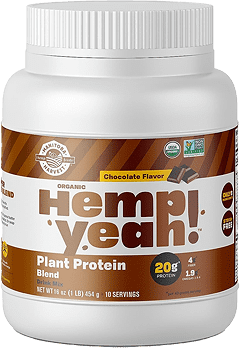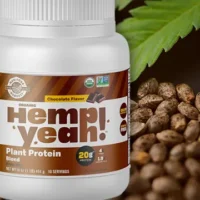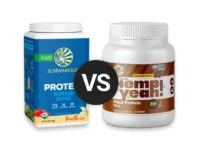Knowledge BaseYou're Questions Answered
Does hemp protein powder show up on a drug test?
Hemp protein powder is a popular plant-based supplement known for its rich nutritional profile, including high-quality protein, fiber, and essential fatty acids. However, there are concerns about whether consuming hemp protein powder can lead to a positive drug test result due to its association with cannabis. Understanding the composition of hemp protein powder and how drug tests work can help address these concerns.
Understanding Hemp Protein Powder
Hemp protein powder is made from the seeds of the hemp plant (Cannabis sativa). While hemp is a variety of the cannabis plant, it contains only trace amounts of tetrahydrocannabinol (THC), the psychoactive compound found in higher concentrations in marijuana. Hemp seeds are processed to remove THC, resulting in a protein powder that is rich in protein, fiber, and healthy fats but very low in THC content1.
THC Content in Hemp Protein Powder
Legally, hemp products must contain less than 0.3% THC by dry weight in the United States. Most reputable manufacturers of hemp protein powder ensure that their products comply with this standard and contain negligible amounts of THC. As a result, the THC levels in hemp protein powder are generally too low to produce psychoactive effects or to show up on a standard drug test2.
Drug Testing and THC Detection
Standard drug tests, such as urine tests, are designed to detect the presence of THC and its metabolites in the body. These tests typically have a threshold level, below which the presence of THC is not reported as a positive result. The threshold for urine tests is usually set at 50 nanograms per milliliter (ng/mL). Given the low THC content in hemp protein powder, it is unlikely to cause THC levels to exceed this threshold and trigger a positive drug test result3.
Factors to Consider
While the risk is minimal, there are a few factors to consider:
- Quality of the Product: Choose hemp protein powder from reputable manufacturers who test their products for THC content and provide certification of analysis. This ensures that the THC levels are within legal limits and reduces the risk of contamination.
- Quantity Consumed: Consuming extremely large amounts of hemp protein powder over a short period might slightly increase THC levels, but it is still unlikely to exceed the threshold for a positive drug test.
- Individual Metabolism: Individual differences in metabolism can affect how THC is processed and eliminated from the body, although this is generally not a concern with the low levels found in hemp protein powder.
So, hemp protein powder is extremely unlikely to cause a positive result on a standard drug test due to its very low THC content. By choosing high-quality products from reputable manufacturers and consuming them in reasonable amounts, the risk of THC detection in a drug test is minimal. For individuals who remain concerned, consulting with a healthcare provider or choosing an alternative plant-based protein source may provide additional peace of mind.
- Callaway, J. C. (2004). Hempseed as a nutritional resource: An overview. Euphytica, 140(1-2), 65-72.
- Small, E., & Marcus, D. (2002). Hemp: A new crop with new uses for North America. Trends in New Crops and New Uses, 284-326.
- Swortwood, M. J., Scheidweiler, K. B., & Huestis, M. A. (2017). Cannabis Inflorescence for Medical Purposes: USP Considerations for Quality Attributes. Cannabis and Cannabinoid Research, 2(1), 1-11.
Related Questions
Related Reviews
Protein vs Protein

Your Answer
We are a participant in the Amazon Services LLC Associates Program, an affiliate advertising program designed to provide a means for us to earn fees by linking to Amazon.com and affiliated sites.



